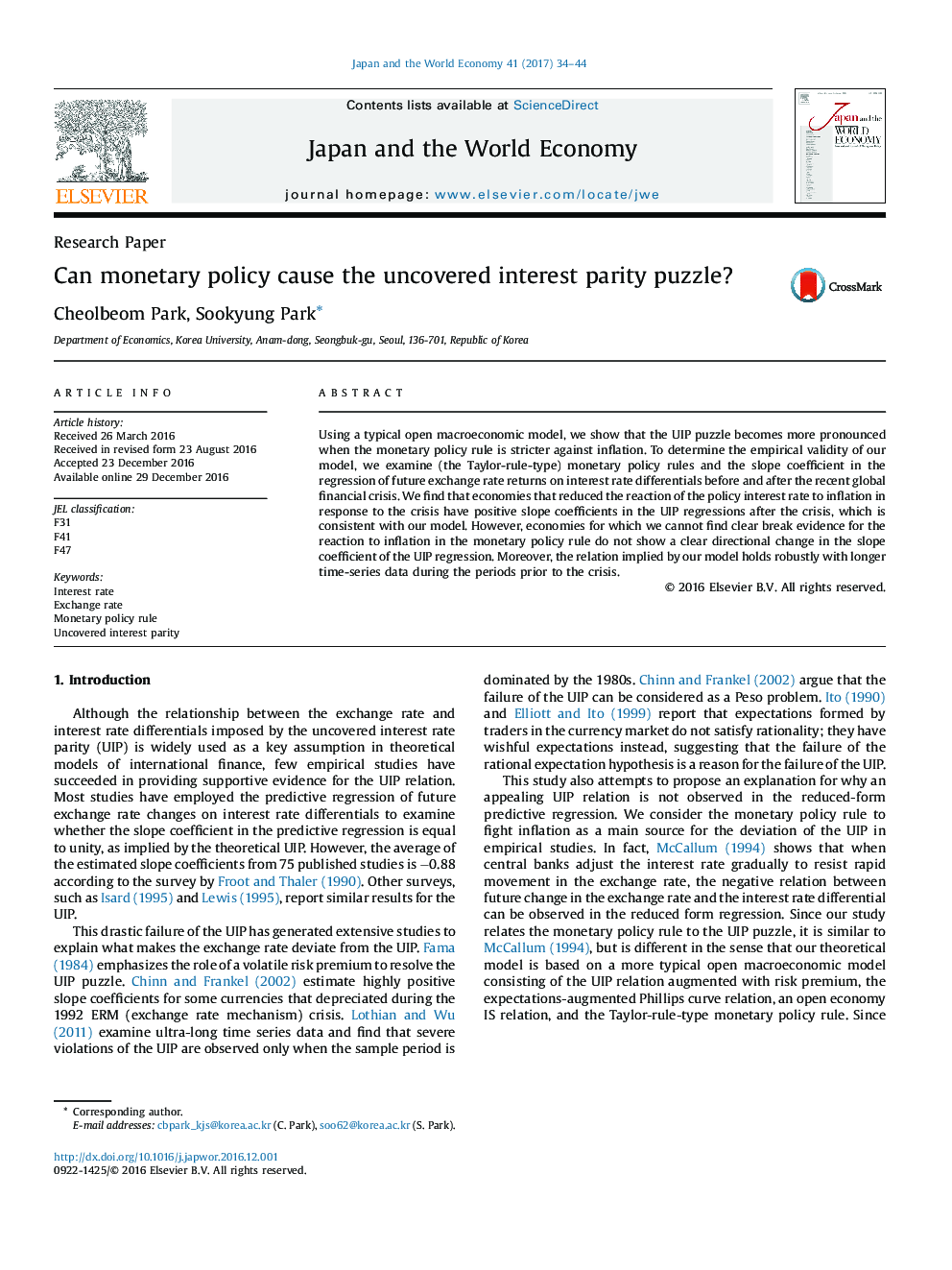| Article ID | Journal | Published Year | Pages | File Type |
|---|---|---|---|---|
| 5086037 | Japan and the World Economy | 2017 | 11 Pages |
Abstract
Using a typical open macroeconomic model, we show that the UIP puzzle becomes more pronounced when the monetary policy rule is stricter against inflation. To determine the empirical validity of our model, we examine (the Taylor-rule-type) monetary policy rules and the slope coefficient in the regression of future exchange rate returns on interest rate differentials before and after the recent global financial crisis. We find that economies that reduced the reaction of the policy interest rate to inflation in response to the crisis have positive slope coefficients in the UIP regressions after the crisis, which is consistent with our model. However, economies for which we cannot find clear break evidence for the reaction to inflation in the monetary policy rule do not show a clear directional change in the slope coefficient of the UIP regression. Moreover, the relation implied by our model holds robustly with longer time-series data during the periods prior to the crisis.
Related Topics
Social Sciences and Humanities
Economics, Econometrics and Finance
Economics and Econometrics
Authors
Cheolbeom Park, Sookyung Park,
